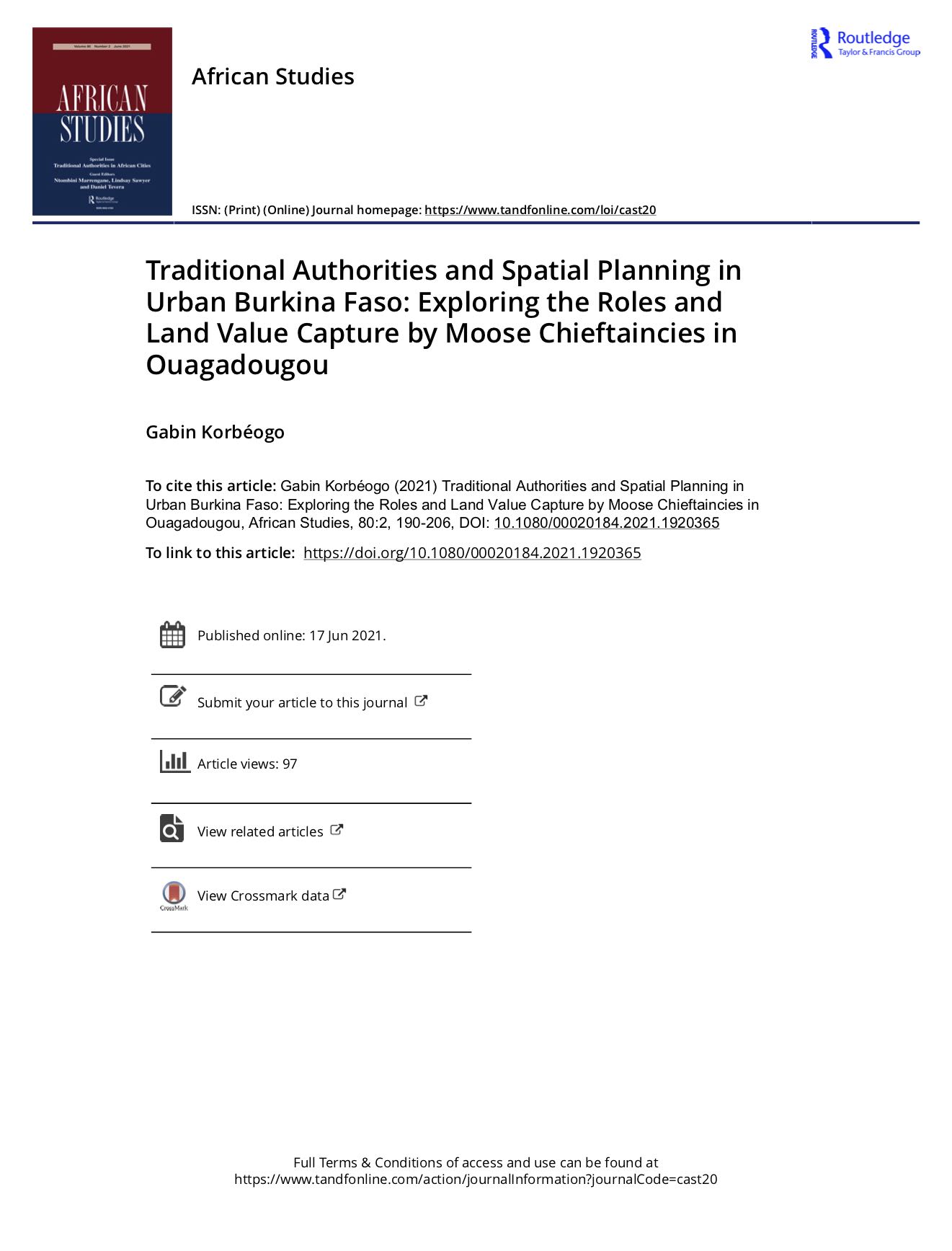Traditional Authorities and Spatial Planning in Urban Burkina Faso
In terms of urban spatial planning, decentralisation and urban growth make it necessary to rethink the sources of legitimacy, agreements and conflicts relating to the actors’ strategies for land access in Ouagadougou. By localising the power and land management in local arenas (municipal territories and neighbourhoods), the decentralisation policy – that has promoted the participatory approach – and legal pluralism have exacerbated land-use competition.




